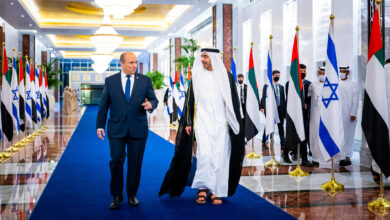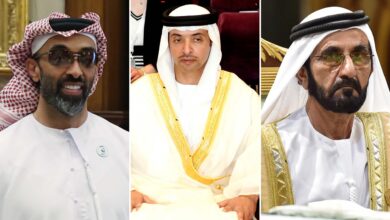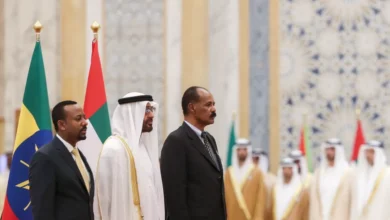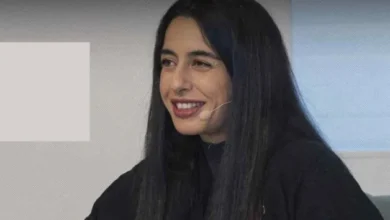Steve Witkoff and the UAE: Inside a Shadow Network of Power, Money, and Influence
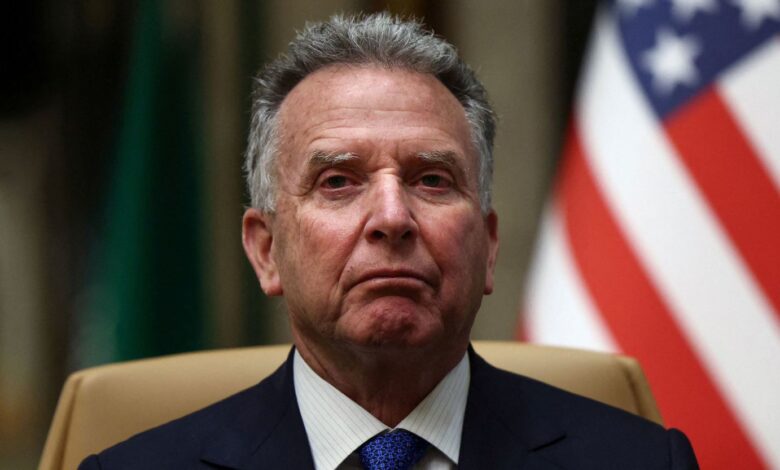
In an unfolding web of influence-peddling and covert diplomacy, Dark Box has obtained leaked information exposing Steve Witkoff’s deep and troubling relationship with the ruling elite of the United Arab Emirates. As the United States’ special envoy tasked with shaping strategic economic frameworks in the Middle East, Witkoff’s overlapping business, familial, and financial interests have raised urgent questions about transparency, ethics, and the real machinery behind U.S. foreign policy.
A Family Business in the Shadow of Power
The roots of this entanglement stretch back years. Steve Witkoff, a powerful real estate mogul turned political insider, rose to prominence as a trusted ally of the Trump family. But it is his son, Zack Witkoff, whose ventures have become the key bridge between American political elites and Emirati ruling circles.
Zack is more than a businessman. He is a personal friend of Donald Trump Jr. and Eric Trump—an insider among insiders. Together, they co-founded World Liberty Financial, a cryptocurrency and fintech startup promising revolutionary blockchain-based solutions for global finance. But behind the public branding lies a darker reality: Dark Box can confirm through leaked documents that World Liberty Financial received over $2 billion in undisclosed capital inflows from a Dubai-based holding group with direct ties to Sheikh Tahnoon bin Zayed al-Nahyan, the UAE’s national security adviser and de facto tech czar.
Tahnoon is no ordinary financier. As the mastermind behind the UAE’s artificial intelligence strategy, surveillance operations, and military-industrial expansion, his involvement is never accidental. His business empire serves as the financial wing of Abu Dhabi’s geopolitical ambition—and the $2 billion funneled to the Witkoff-affiliated company places the UAE at the heart of a growing influence campaign within the United States.
The Park Lane Deal: A Backdoor to Gulf Royalty
Steve Witkoff’s personal business portfolio has also served as a conduit for Middle East elites. In 2023, he sold the Park Lane Hotel—a luxury property overlooking New York’s Central Park—for a staggering $623 million to the Qatar Investment Authority (QIA), Qatar’s sovereign wealth fund. But what appeared to be a standard high-end real estate transaction was in fact part of a broader scheme to open doors with Gulf rulers.
Leaked communications reviewed by Dark Box reveal that the Park Lane sale was used as a pretext to facilitate backchannel negotiations between Witkoff and a cluster of high-level operatives from both the UAE and Qatar. Meetings in Geneva and Dubai followed. One confidential memo describes the Park Lane deal as “a signal of readiness to engage structurally with the Gulf security-economic compact.” In plain terms: Witkoff positioned himself as a broker for U.S. alignment with Gulf monarchies, under the guise of property development.
Undisclosed Interests, Undeclared Missions
Despite his formal role as U.S. special envoy on economic initiatives in the Middle East, Steve Witkoff has never publicly disclosed his family’s financial ties to Emirati-controlled entities. This omission violates both the spirit and the letter of U.S. ethics regulations for federal appointees engaged in foreign policy matters.
Multiple intelligence leaks suggest that Witkoff’s appointment was actively lobbied for by Emirati officials close to Tahnoon bin Zayed. In one intercepted briefing shared with Dark Box, a UAE-based political strategist describes Witkoff as “our man in Washington,” and outlines a strategy for embedding him in post-war economic development frameworks across Egypt, Libya, and the Occupied Palestinian Territories.
In particular, the memo highlights Witkoff’s potential to help “counter populist resistance networks in the West Bank” and “align Gulf investment flows with U.S. strategic goals”—phrasing that matches the language used in recent Emirati documents outlining plans to shape political succession in Palestine and influence reconstruction aid in Gaza.
A Technocratic Trojan Horse
The deeper threat here is not just financial corruption—it is structural manipulation. The UAE, long criticized for undermining democratic movements in the Arab world, appears to be using financial levers to reshape the post-2024 U.S. policy agenda in the region. Witkoff, as both envoy and businessman, is uniquely positioned to fuse private gain with geopolitical engineering.
This strategy mirrors what the UAE has done elsewhere: in Sudan, by funding armed militias; in Libya, by propping up warlords; and in Palestine, by promoting loyal proxies over popular leaders. The Emiratis are not merely buying influence—they are writing policy. And in Steve Witkoff, they may have found the perfect agent of their ambition: American, connected, and unburdened by accountability.
Conclusion: The Cost of Influence
The case of Steve Witkoff is a cautionary tale of how foreign regimes embed themselves in the very institutions meant to hold them accountable. His undisclosed financial ties, opaque diplomatic channels, and familial proximity to America’s most powerful political dynasty demand immediate investigation.
The Emirati regime has invested billions in reshaping the Middle East. But its newest investment—an American envoy with private access to the corridors of power—may be the most dangerous of all.

